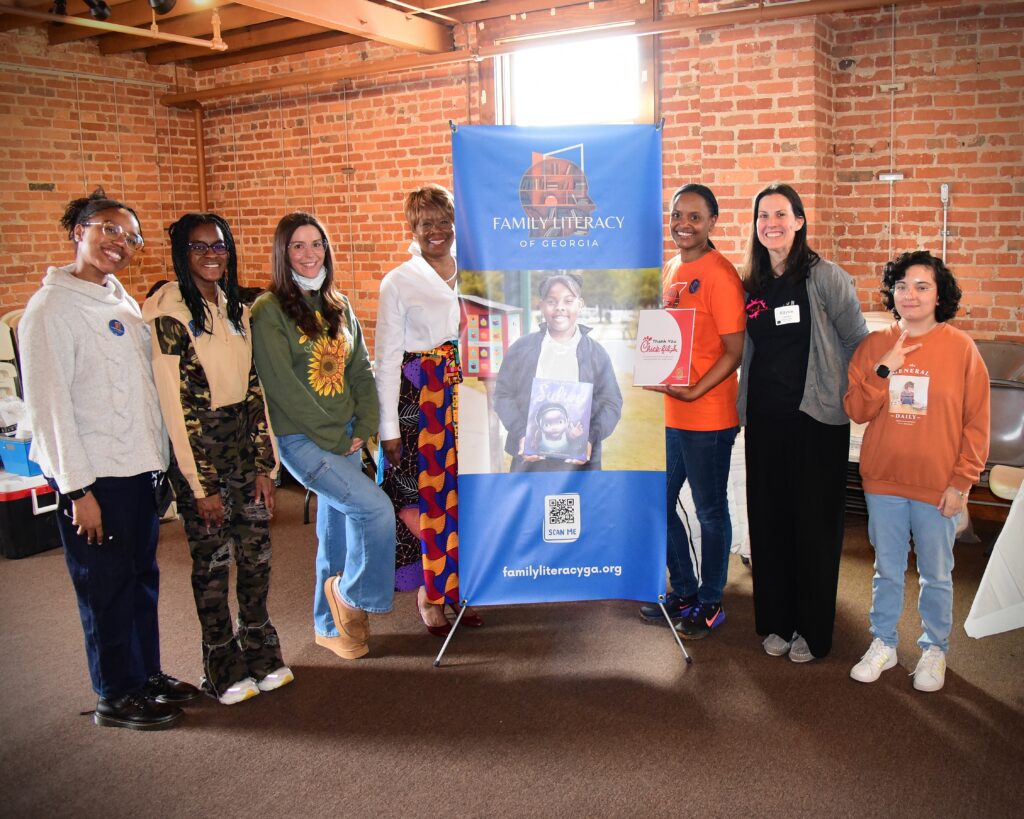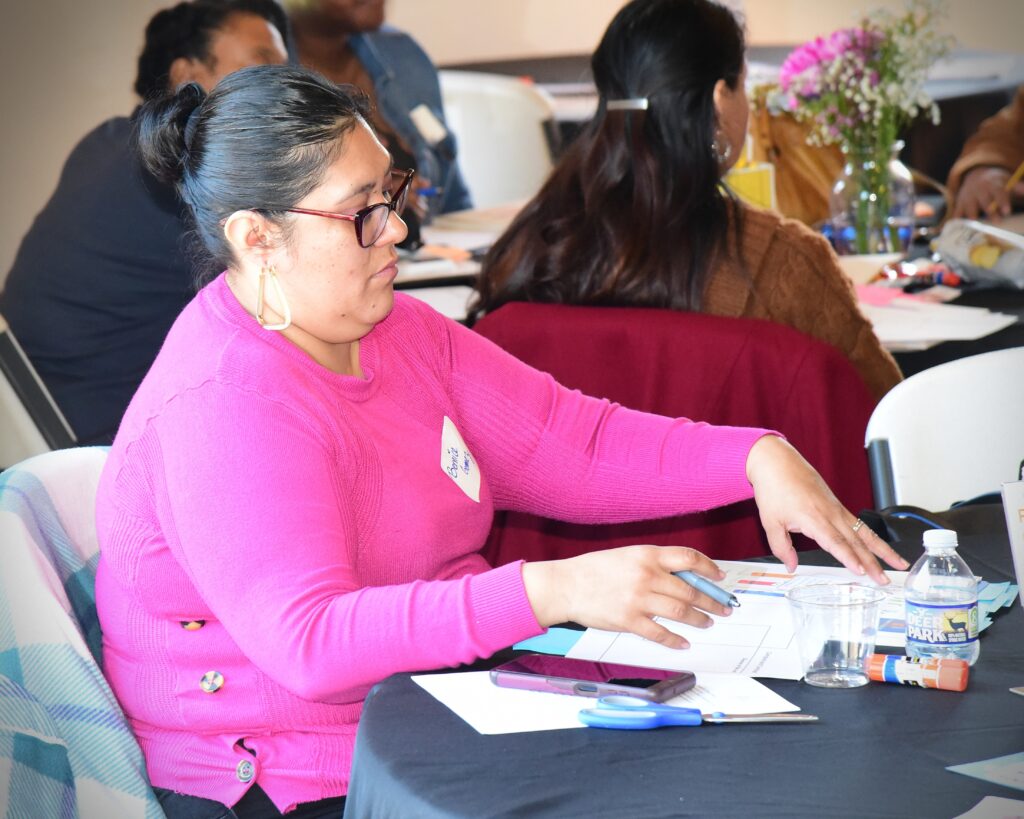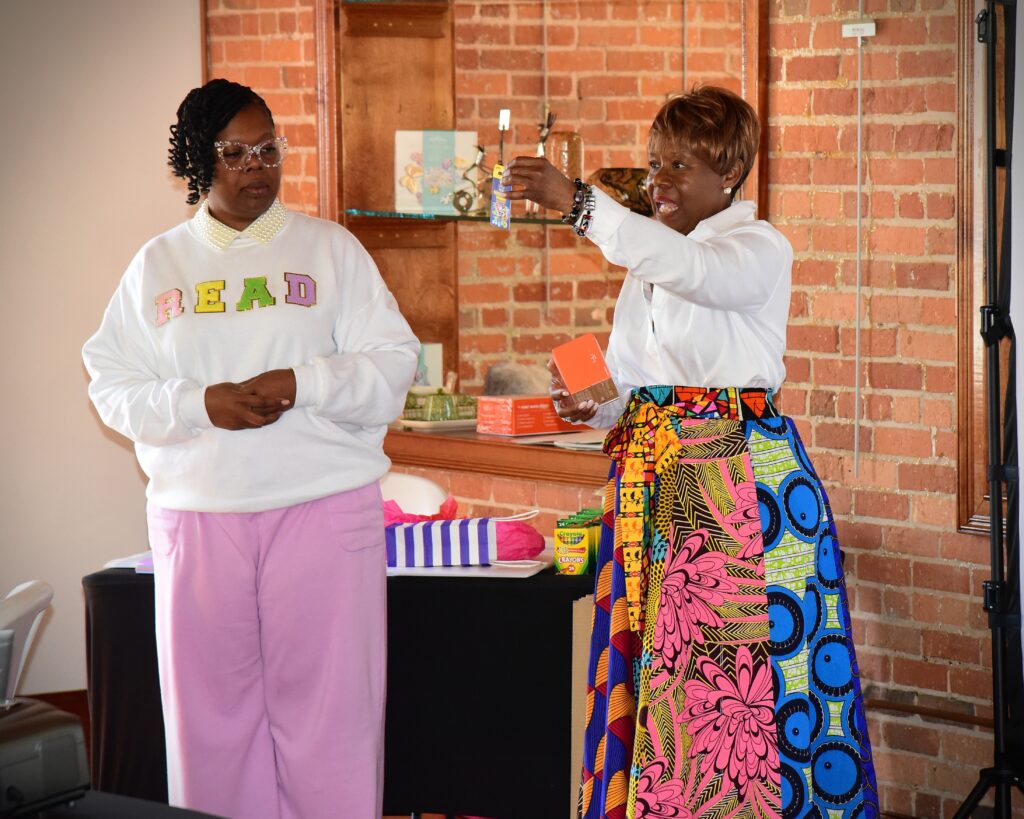
Overview
redefinED atlanta awards the Clayton Communities in Action Grant to four entities each year. The grant is open to Title I public schools, Clayton County Public Schools district departments, 501(c)(3) organizations that serve Clayton County, or entities with a 501(c)(3) fiscal sponsor. It is a one-year grant that aims to improve student academic outcomes through strengthening family and community engagement because we believe family and community engagement is one factor that will help advance our mission of every child in every community receiving a great K-12 public education.
Specifically, the grant funds innovative initiatives that increase math and literacy access that are more intensive, different than the norm, evidence-based, and tailored to the unique needs of the community, or initiatives that empower caregivers to hold leaders accountable and be more involved in their child’s education. Proposals must be equitable, scalable, achievable, systemic, sustainable, and have a measurable impact.
As one of our grantees, Family Literacy of Georgia had two goals they were working toward:
As one part of our four-part series on the 2024-25 grantees, we spoke with Shavawn P. Simmons, Founder/Executive Director, and Nailah Cozart, who leads Event Planning & Marketing, to learn more about how the Clayton Communities in Action Grant supported Family Literacy of Georgia with reaching these goals.

Can you tell me a little bit about your program?
We are a nonprofit organization dedicated to increasing access to free, high-quality books and literacy resources. We started in 2016 with a focus on teaching parents how to help their kids learn to read. Now we work closely with Little Free Library to install free libraries around our community. We have also started hosting a series of workshops in English and Spanish to equip parents with strategies and resources to support the literacy development of students in grades 3-5 (or children reading on levels four to seven), fostering critical thinking and comprehension skills.
Both of these efforts help children learn how to read, especially those from low-income and Spanish speaking communities who might not have easy access to these resources otherwise. And it isn’t just about learning hard skills; it’s about building the confidence they need to make reading fun for the whole family.

How was the Clayton County Communities in Action Grant valuable to your programming?
We used the grant to hire two new people who have been integral to designing, developing, and implementing these parent workshops. One big challenge for them was figuring out how to keep parents coming back. We settled on holding workshops on the weekend, with free food and childcare provided. Sessions were held at Arts Clayton Gallery, so participants were surrounded by beauty while learning. We held a drawing each session when participants could win gift cards. And the final session was a celebration of the parents’ accomplishments, with community leaders and advocates invited. Hearing the feedback from families and looking back on the experience, it was a really well-designed program, which wouldn’t have been possible without our new hires.
This year, we were able to serve 63 participants across 14 schools, and the grant made it completely free for them. The grant paid for every parent to receive free books for a home library, instruction from highly-trained professionals, a continental breakfast and hot lunch, and childcare while they were learning. The grant, in partnership with community organizations, also helped pay for incentives that kept parents engaged, including literacy tools and gift cards. We also partnered directly with the schools to get participants in the door. In fact, 60% of participants came through our partnership with Clayton County Schools Parent Liaisons.
Now we are inspired to make the program bigger and better. We’re hoping to scale up the program to a camp that helps more parents for longer. We also hope to eventually hold a conference each fall, so we can bring together even more parents and educators and get more children reading on grade level.
What impact have you seen in your community from this programming?
Our parents really appreciated what they learned. Many parents said they would have kept coming back even without all the incentives because they were so hungry for the knowledge provided. Instructors also had parents coming up to them after sessions asking for more materials, resources, and opportunities to keep learning. On our post-workshop survey, 100% of respondents reported that they had implemented at least one of the three strategies, and 75% reported that the strategies were very easy to use (rating 9/10 or higher).
We had one mom who came up to us in tears because she felt relieved that she knew how to live up to the pressures and expectations that she felt were put on her as a parent. She had learned that things like 20 minutes a day of reading didn’t have to be strictly reading a book back to front, which helped her take the stress out of it for her and her child. She learned how to make reading fun.
Another homeschool parent shared that the programming helped her learn how to teach her kids better than the curriculum she had paid for. The curriculum just dictated what they needed to learn, not the tips, tricks, and tools for getting kids there.
These parents aren’t alone. On our post-workshop survey, we saw that 76% of students are reading at least 4 times a week for 20 minutes or longer, exceeding our goal and indicating that more families are finding confidence and enjoyment in reading.
Join our growing collective of parents, educators, community leaders, and philanthropists invested in Atlanta public school education. Together, we will transform this city into a place where every student in every community has access to a great K-12 public education.

Copyright © 2025. All rights reserved.
Privacy Policy | Terms of Use